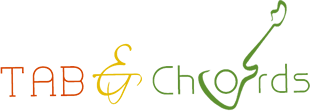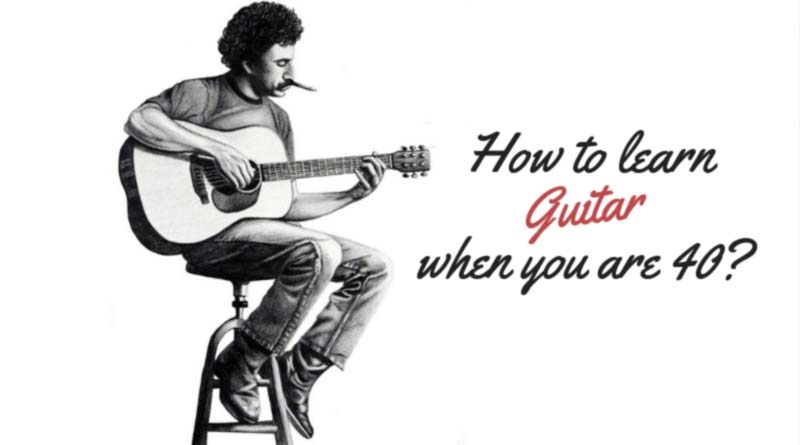How to learn the guitar when you are 40?
A lot of people want to learn how to play the guitar when they are old. Say 40 or 50 years old. And what do most people say? You can’t learn the guitar when you are old. That’s just wrong and discouraging.
Myth: You can’t learn the guitar when you are 40+ years old.
Fact: You can learn the guitar at any age.
Let us understand why you can learn at any age. This has a lot to do with how your brain functions.
No doubt, it will be a little tougher than learning at 16 years of age. This does not mean it is impossible or you have to go too much out of your way to learn it. All you need is a strategy in learning efficiently.
Why is learning guitar when you are old difficult?
Learning occurs in the brain; even muscle memory. The human brain is less efficient at learning novel things as we get older and older.
Synaptic plasticity is the ability of your brain cells to form unique connections and adapt by changing their physical form to acquire any skill or learn anything. Synaptic plasticity is necessary for learning. It is lesser during old age than in your teens. Children have the highest plasticity and it drastically reduces post 80 years.
Muscle fine tuning. Playing the guitar or any instrument requires your muscles to respond in very specific ways and it takes time for this to happen. It might take more rehearsals for your muscles to get used to certain movements, let alone acquire the muscle memory. As I said, plasticity reduces when you are older and the brain takes time to record this muscle memory.
Mental set. As we grow older, our outlook towards anything becomes stable due to our experiences and it may get difficult to think out of the box in novel situations. This problem transfers to difficulties in learning an instrument. One has to explore and one has to go through a lot of trial and error to learn effectively. You will probably need to put in some deliberate effort in exploring the instrument outside of instructions. Something I advise even a 16-year-old because it is always useful.
Common myth: The brain is plastic only until your mid-20’s.
Truth: The brain is forever plastic. You can technically learn at 100 years of age, but it might just be slow. You can teach an old dog new tricks only if the right method is used.
How to learn the guitar when you are 40?
Here are some ways you can learn at 40. Make it less of a work task and more of a hobby. Try stuff out and fiddle around with the guitar. Trial and error is key. Constant revision is necessary. And there must be tonnes of deliberate practice.
Now due to lesser plasticity, forming new concepts can get hard. So what you would need is to find analogies between other things that you have experience din life. So your brain will rely on those analogies to help build newer concepts.
Another common issue: People think that you need a musical ear or a rhythm sense to begin learning. That isn’t true. You can be a great guitarist even if you are tone-deaf and cannot move your body to dance and groove. You will develop your ear and rhythm with the help of your instrument! Added bonus haha.
So even if one has no musical experience for 40 years, starting at 40 is not that bad. It will make things harder but that is exactly when one would need someone to explain music in terms/analogies the 40-year-old will understand. There is a strong chance that the learner will find analogies and rely on them. It is especially easy for coders to learn because they are good at thinking in an abstract way.
Advice: Let there be something that sustains your motivation to learn. Get a partner or colleague to learn alongside. Learn to impress your children or learn to play songs that you enjoy or learn to explore!
The verdict: Yes, it is difficult to learn but it isn’t so difficult that you should be discouraged.
Anecdotal evidence: My grandfather is 80, and he learned to use both his hands independently for the keyboard at 50+ He shifted from playing the accordion.
How to learn the guitar effectively anyway?
If you are really interested in being the best guitarist you can be, follow these 8 guitar learning tips from neuroscience and psychology. They are specifically designed to make your guitar practice sessions more effective!
I talk about using some specialized techniques like incorporating variations, using the transfer effect, interleaving, etc. These will help even more when you are old because the repetition of licks is less effective due to poor plasticity.
Hope you follow your passion and learn the guitar regardless of your age! It’s an awesome instrument and incredibly satisfying. Good luck.

About Author
Aditya Shukla is an applied psychologist from Pune, India. He loves to design ways to implement psychological research to improve as many things aspossible – learning instruments, product design, online learning, experiences, writing, etc. He is also a professional guitarist & mentor. Loves Sci-fi & Coffee. Can’t whistle.



